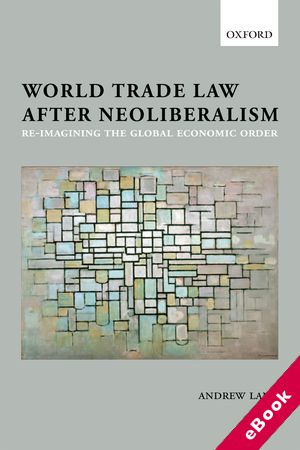
The device(s) you use to access the eBook content must be authorized with an Adobe ID before you download the product otherwise it will fail to register correctly.
For further information see https://www.wildy.com/ebook-formats
Once the order is confirmed an automated e-mail will be sent to you to allow you to download the eBook.
All eBooks are supplied firm sale and cannot be returned. If you believe there is a fault with your eBook then contact us on ebooks@wildy.com and we will help in resolving the issue. This does not affect your statutory rights.
The rise of economic liberalism in the latter stages of the 20th century coincided with a fundamental transformation of international economic governance, especially through the law of the World Trade Organization.
In this book, Andrew Lang provides a new account of this transformation, and considers its enduring implications for international law. Against the commonly-held idea that 'neoliberal' policy prescriptions were encoded into WTO law, Lang argues that the last decades of the 20th century saw a reinvention of the international trade regime, and a reconstitution of its internal structures of knowledge.
In addition, the book explores the way that resistance to economic liberalism was expressed and articulated over the same period in other areas of international law, most prominently international human rights law. It considers the promise and limitations of this form of 'inter-regime' contestation, arguing that measures to ensure greater collaboration and cooperation between regimes may fail in their objectives if they are not accompanied by a simultaneous destabilization of each regime's structures of knowledge and characteristic features.
With that in mind, the book contributes to a full and productive contestation of the nature and purpose of global economic governance.